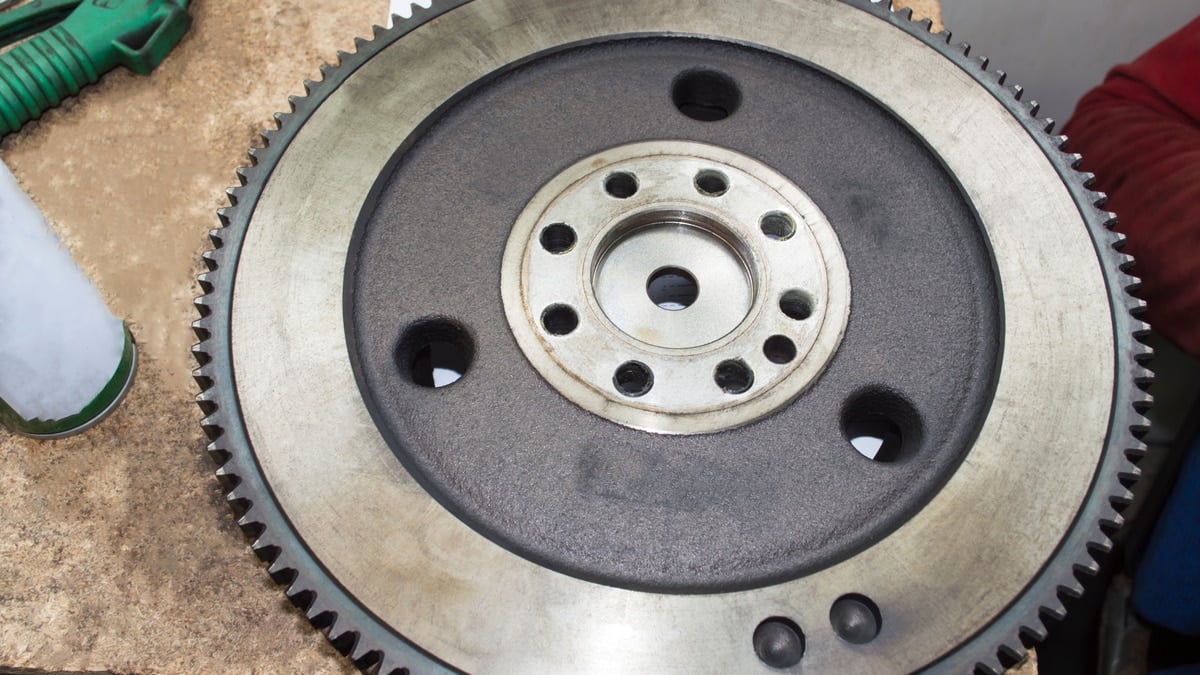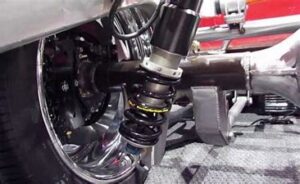Imagine yourself driving down the road with the wind in your hair when all of a sudden your automobile acts as though it’s having a rough day. Unusual noises, difficulty shifting gears, and a general unease could all be signs that something is wrong with your car’s flywheel. You may be asking yourself, what the heck is a flywheel and why is that important? To put it simply, the flywheel is your car’s engine’s unsung hero. It’s a spherical, disc-shaped device that discreetly keeps your engine running smoothly and steadily.
However, if the flywheel decides to have a meltdown, your car may experience some major issues. That’s the situation this article helps with. How do you know if your flywheel is bad in a car if you’re wondering? Don’t worry, we’ll help you identify the warning signs before your automobile chooses to stage a protest on the side of the road, solve the enigma of a broken flywheel, and explain why it matters. So fasten your seatbelts and join us as we explore the world of auto repair and discover how to understand the messages your automobile is trying to convey to you, like “Hey, my flywheel might need some attention!”
Table of Contents
Understanding The Flywheel In A Car And Why It’s Important?
The flywheel acts as a conductor in the harmonious arrangement of auto parts, guaranteeing a seamless and well-executed performance. So what is this relatively insignificant disc-shaped component, and why is it so important to the engine orchestra of your car?
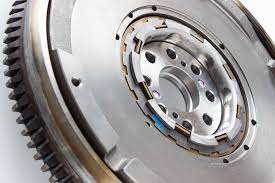
Simply put, the flywheel is an essential component of the transmission of your car. Its main function is to store and control rotational energy. It is attached to the engine. Think of the flywheel as a power storage unit for your car; it retains extra energy produced by the engine during each spin for use at a later time. By keeping the power to the wheels steady and even, this stored energy helps avoid sudden jolts or jerks when accelerating or changing speed.
Why, therefore, is the flywheel so important? In other words, it acts as a stabilizer, reducing the irregular spikes in power produced by the engine. This preserves the transmission system from needless wear and tear in addition to making the ride more comfortable. To put it simply, the flywheel is the unsung hero that keeps your car’s engine running smoothly so you may drive smoothly and efficiently. Thus, while it functions properly, you might not notice it, but when it malfunctions, the performance of your car may suffer. Maintaining a well-maintained and dependable car requires an appreciation of and understanding of the function of the flywheel.
How Do You Know If Your Flywheel Is Bad: Unveiling Mystery!
The flywheel is an essential component of your car’s transmission system, its heart and soul. Like any labour-intensive component, though, it is not impervious to problems. Let’s take a quick look at the typical reasons for a misbehaving flywheel.
1. Wear And Tear:
Flywheels can wear out over time, just like your beloved pair of shoes that eventually lose their grip. The flywheel’s surface may become uneven due to wear and tear from the continuous friction and heat produced by repeated driving. This irregularity may cause odd noises, vibrations, and a generally rough ride.
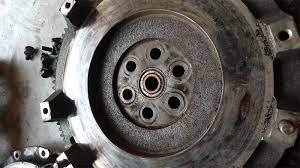
2. Pollution With Oil:
Imagine attempting to cook with items that are drenched in oil; the results are unappealing and messy. Likewise, problems might arise if oil seeps into the flywheel as a result of an engine or transmission leak. The efficacy of the flywheel is decreased by oil pollution on its surface, which results in slippage and makes it harder to engage the clutch.
3. Flaws In Manufacturing:
Sometimes, the production process is at blame rather than your driving behaviour. Like any other component, flywheels can have flaws right out of the factory. These flaws could be imbalances or irregularities that cause premature wear and tear and an early failure of the flywheel.
4. Misaligned Clutch:
Consider the clutch and flywheel to be complementary dance partners. On the other hand, a misplaced clutch may result in increased friction and flywheel wear. This delicate dance can be upset by improper installation or changes, which can result in a variety of problems, including a worn-out flywheel.
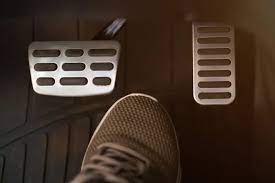
5. Poor Installation:
In relation to installation, improper installation can cause issues with even the most resilient flywheel. An improper torque, alignment, or fastening can cause early wear and, eventually, a flywheel that breaks down.
Therefore, knowing these typical reasons is akin to knowing the ABCs of keeping the flywheel in your car in good working order. Frequent inspections, fast repair of oil leaks, and making sure everything is installed correctly all help to avert these problems. You can protect your car’s transmission system and drive it more smoothly and dependably by keeping yourself informed.
How To Tackle A Bad Flywheel In Your Car: Simple Solutions
However, now that we have seen your query how do you know if your flywheel is bad in a car? Let’s get our hands dirty and look at workable fixes to get your car back on the road without any drama.
1. Continual Upkeep:
Regular maintenance is the first line of protection against a malfunctioning flywheel. Your car needs maintenance as much as you do when you go to the doctor. Pay attention to the maintenance plan for your car and make sure that regular check-ups include an inspection of the flywheel. Early detection of any problems can protect you from later, more serious complications.

2. Look For Leaks In Oil:
Oil pollution is one common cause of a cranky flywheel. Oil may seep into the flywheel of your car if there is a leak in the engine or transmission. Trouble is ahead with this. save an eye out for oil leaks in your automobile and fix them right away to save the flywheel from acting up.
3. Importance Of Clutch Alignment
For your flywheel, a misplaced clutch might be a serious nuisance. For maximum protection against needless wear and tear, make sure the clutch and flywheel are correctly aligned. It’s time to have your clutch alignment examined if you experience any problems changing gears or slipping the clutch.
4. Expert Exam And Maintenance:
When in doubt, get expert assistance. It’s best to take your automobile to a reputable repair if your flywheel is giving you recurrent problems. They possess the know-how to carry out an exhaustive examination, precisely identify the issue, and provide the required fixes. Sometimes, all that’s needed to return things to normal is a straightforward flywheel resurfacing.

5. Substitution When Required:
There are instances where the flywheel damage may be irreparable. Don’t panic if that’s the final decision. Changing the flywheel is a workable fix. Even though it could cost a little bit extra, it guarantees that the transmission system in your car remains in excellent shape, averting future problems.
However, resolving a malfunctioning flywheel necessitates a combination of attentiveness, routine upkeep, and expert assistance. You can maintain the flywheel of your automobile in good condition and guarantee a more dependable and comfortable ride by being proactive and taking quick action when necessary. Keep in mind that a happy and healthy car starts with a well-maintained flywheel.
Conclusion:
In conclusion, if you’re still wondering how do you know if your flywheel is bad? However, you can identify a damaged flywheel in your car by keeping an eye out for symptoms like strange noises, trouble shifting gears, or a vibrating clutch pedal. Remember that a healthy flywheel is essential to the smooth operation of your car, so pay attention to these signals. Your allies should be routine upkeep, early detection, and swift action. If you encounter any of these problems, get advice from a qualified mechanic to solve the issue as soon as possible. Recall that a well-maintained flywheel guarantees a safer and more pleasurable driving experience, so exercise caution and maintain excellent car care for worry-free road trips.
